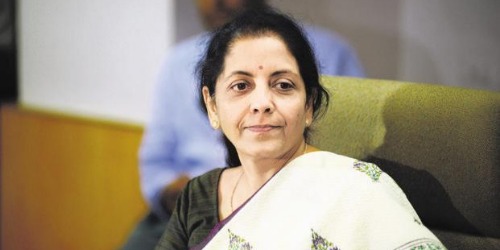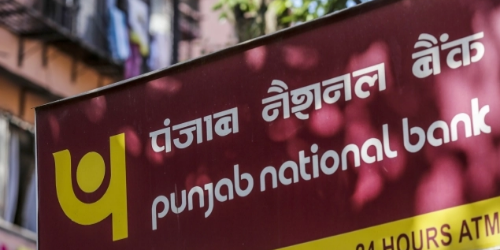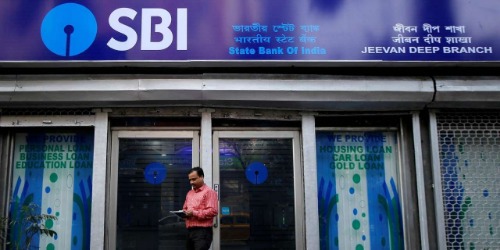Nirmala Sitharaman is Finance Minister: Facts about the senior-most woman in Modi's cabinet

Nirmala Sitharaman is all set to step into Arun Jaitley's shoes as she takes charge of the finance portfolio in Modi's Cabinet 2.0. She has served as the defence minister in the Modi government's first term from September 2017 to May 2019.
She took charge as the Finance Minister on Friday afternoon.
Here are quick facts about the new Finance Minister:
1. She is the country's second female finance minister. Previously, former prime minister Indira Gandhi had also handled the finance portfolio in 1970-71.
2. Sixty-year-old Sitharaman was the first woman to be appointed full-time Defence Minister of India in September 2017.
3. Although the defence portfolio was passed around to three ministers under Modi 1.0 government and Sitharaman was seen by many as a tail-end batsman coming in for the slog overs, she proved to be a tenacious player. She has, in fact, driven many of the policy changes like the new defence manufacturing policy and launched the UP and Tamil Nadu defence industrial corridors.
4. She previously served as Minister of State (Independent charge) of the Ministry of Commerce and Industry and had also handled the finance and corporate affairs portfolios as minister of state.
5. In 2003, during Prime Minister Atal Bihari Vajpayee's tenure, she became a member of National Women for Commission till 2005. The following year, she joined the BJP and became the national spokesperson of the party.
6. Since 2016, she has served as Member of the Rajya Sabha, the upper house of Parliament.
- 0
- Leave a comment
The US took India out of the Currency Monitoring Committee

The Trump administration on Tuesday removed India from its currency monitoring list of major trading partners, citing certain developments and steps being taken by New Delhi which address some of its major concerns. Switzerland is the other nation that has been removed by the US from its currency monitoring list which among others include China, Japan, South Korea, Germany, Italy, Ireland, Singapore, Malaysia and Vietnam.
India has been removed from the monitoring list in this report, having met only one out of three criteria a significant bilateral surplus with the US for two consecutive reports, the Treasury Department said in its latest semi-annual report on macroeconomic and foreign exchange policies of major trading partners of the US sent to the Congress. After purchasing foreign exchange on net in 2017, the central bank steadily sold reserves for most of 2018, with net sales of foreign exchange reaching 1.7 per cent of GDP over the year, it said.
India maintains ample reserves according to the IMF metrics for reserve adequacy, it said. In both Switzerland and India, there was a notable decline in 2018 in the scale and frequency of foreign exchange purchases, the report said. Neither Switzerland nor India met the criteria for having engaged in persistent, one-sided intervention in either the October 2018 report or this report. Both Switzerland and India have been removed from the monitoring list, the Treasury said in its report running into over 40 pages.
India for the first time was placed by the US in its currency monitoring list of countries with potentially questionable foreign exchange policies in May 2018 along with five other countries - China, Germany, Japan, South Korea and Switzerland. In its next report in October 2018, the Treasury had said that India has made improvements and its name would be removed from the currency manipulation list in the next report.
"India's circumstances have shifted markedly, as the central bank's net sales of foreign exchange over the first six months of 2018 led net purchases over the four quarters through June 2018 to fall to USD 4 billion, or 0.2 per cent of the GDP," the Treasury had said in its October 2018 report.
PNB net loss narrows to Rs 9,975.49 crore in FY19 on lower provisions; asset quality improves

Punjab National Bank (PNB) on Tuesday reported narrowing of its net loss to Rs 9,975.49 crore in the financial year 2018-19, helped by decline in provisions and improvement in asset quality. The scam-hit lender had posted net loss of Rs 12,282.82 crore in FY18, after the bank discovered a banking fraud of Rs 14,000 crore which was orchestrated by fugitive billionaire Nirav Modi and Mehul Choksi.
"The total income of the bank declined marginally to Rs 58,687.66 crore versus Rs 56,876.63 crore in the last fiscal," PNB said in a filing to the Bombay Stock Exchange.
The operating profit for FY19 climbed by 26.23 per cent to Rs 12,995.24 crore as compared to Rs 10,294.20 crore in FY18. The bank's provisions and contingencies declined marginally to Rs 28,341.01 crore from Rs 29,869.28 crore in the last year.
PNB's asset quality improved in FY19 with gross non-performing assets (NPAs) ratio - bad loans as a percentage of gross advances - declining to 15.50 per cent versus 18.38 per cent in the previous year. Net NPA also fell to 6.56 per cent as compared to 11.24 per cent in the last fiscal.
In accordance with the Reserve Bank of India guidelines, PNB made a provision of Rs. 11,940.15 crore towards its exposure to accounts covered under provisions of Insolvency and Bankruptcy Code (IBC), the bank said in its exchange filing.
During the January-March quarter, the bank's net loss narrowed to Rs 4,750 crore as compared to loss of 13,417 crore reported in the same quarter last year.
The public sector lender's net interest income (NII), which is the difference between interest earned and interest expended, grew 37.1 per cent year-on-year to Rs 4,200 crore in Q4 FY19. Net interest margin (NIM) of PNB increased to 2.45 per cent from 1.90 per cent in the March quarter of 2018.
During the March quarter, the bank restructured 13,682 MSME accounts worth Rs 622 crore.
The bank's board has not declared any dividend for the financial year ended March 31, 2019.
Meanwhile, PNB shares were trading at Rs 86.55 apiece, down 3.08 per cent, over its previous close on the BSE.
SBI's New Rules To Come Into Effect From May 1

With effect from May 1, customers of State Bank of India (SBI) savings account will get less interest on deposits of more than one lakh rupees. The interest rates on deposits above one lakh rupees will stand at 3.25 percent, which will be 2.75 percent below the repo rate, SBI mentioned on its website- sbi.co.in. Earlier this month, Reserve Bank of India (RBI) cut the repo rate by 25 basis points from 6.25 percent to 6 percent. Repo rate is the interest rate at which the central bank lends money to commercial banks such as SBI.
Here are 5 things to know about SBI's new rules that will come into effect from May 1:
1. SBI will link its key pricing decision for savings bank deposits and short term loans to the repo rate of the Reserve Bank of India (RBI), with effect from May 1, 2019.
2. According to the lending major, the step is in order to address the concern of rigidities in the balance sheet structure and for quick transmission of changes in RBI's policy rates.
3. For balances up to Rs. 1 lakh, SBI will offer an interest rate of 3.50 percent per annum, the lender said.
4. "In order to insulate the small deposit holders and small borrowers from the movement of external benchmarks, SBI has decided to exempt Savings Bank account holders with balances up to Rs. 1 lakh and borrowers with cash credit or overdraft limits up to Rs. 1 lakh from linkage to the repo rate," the bank earlier said in a statement.
5. Earlier this month, SBI also reduced its interest rate by 10 basis points or 0.10 percent on home loans of up to Rs. 30 lakh. The interest rate on SBI housing loans or home loans below Rs. 30 lakh now stands in the range of 8.60-8.90%. SBI also reduced its benchmark marginal cost of funds-based lending rate (MCLR) by 5 basis points (0.05 percent) across all tenors. The MCLR now stands at 8.50 percent for the one-year tenor, according to SBI.
Indian government looks to ban cryptocurrencies; starts consultations on bill

The Indian government is looking to ban cryptocurrencies in its entirety and a committee under it has already begun the consultations on a bill called "Banning of Cryptocurrencies and Regulation of Official Digital Currencies Bill 2019". Indian lawmakers have taken a hostile approach towards cryptocurrencies and have suggested: "an urgent need of a ban" on the digital currency.
Earlier in the year, the Supreme Court had given a deadline of four weeks to the government to come up with regulations for cryptocurrencies. At the moment, the draft bill is being circulated to the appropriate government officials.
The bill was drafted by a committee under the government and consisted of various ministries under the Finance Secretary, Subhash Chandra Garg. The committee included the Department of Economic Affairs (DEA), the Central Board of Direct Taxes (CBDT), the Central Board of Indirect Taxes and Customs (CBIC) and the Investor Education and Protection Fund Authority (IEPFA), among others.
The government could ban cryptocurrencies under the Prevention of Money Laundering Act (PMLA). Earlier there were reports that the government is looking to bring in regulation policies regarding digital currencies and were in the process of setting up a committee.
"The ministry of corporate affairs has in its feedback to the department of economic affairs pointed out the sale purchase and issuance of cryptocurrencies such as Bitcoin, Etherium & Cashcoin, etc. are being done by individuals and companies on false inducements of massive returns. Such schemes are neither transparent nor do they fall within any regulated legal framework. Many of them are run as Ponzi schemes, it said adding that these schemes were being used to defraud gullible investors".
Earlier, RBI had said that entities regulated by it cannot provide services to any individual or businesses dealing with or settling virtual currencies.
"We have decided to ring-fence the RBI regulated entities from the risk of dealing with entities associated with virtual currencies. They are required to stop having a business relationship with the entities dealing with virtual currencies forthwith and unwind the existing relationship within a period of three months," BP Kanungo, Deputy Governor, RBI had said.


